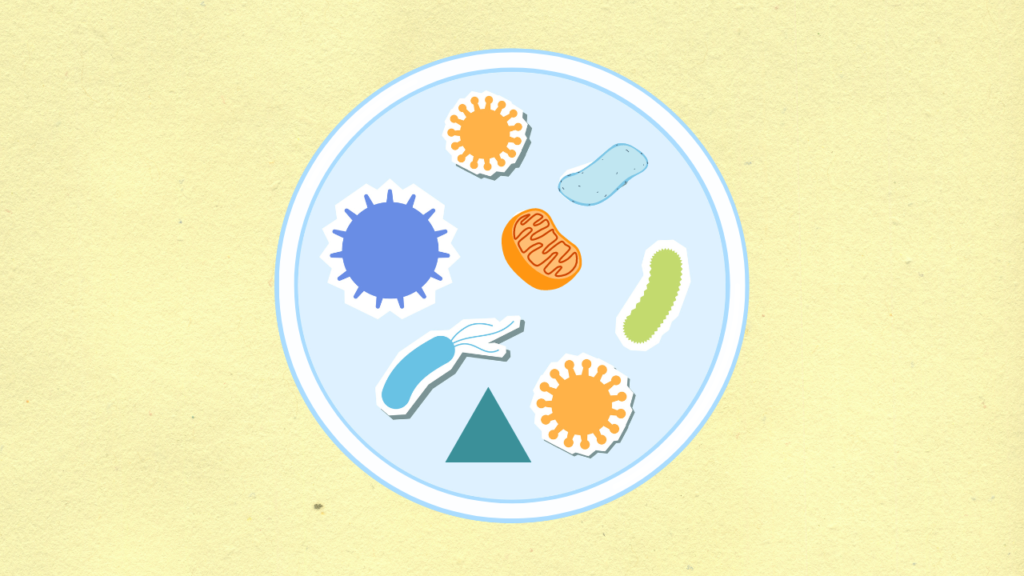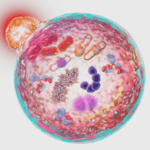Ever wonder why is autophagy important?
It’s because it maintains the overall health and proper functioning of our body cells. It removes old and damaged cellular components, and doing so it helps delay the aging process and reduce the risk of diseases such as cancer, neurodegenerative disorders, and heart disease. Further, it helps protect us from infections and strengthens our immune response.

The word autophagy is derived from the Greek words meaning “self-eating.” It’s a natural process that occurs within our body cells. Inside the cell, it’s responsible for breaking down and removing components that are no longer needed. Think of it as a cellular recycling system that removes waste materials and recycles them as reusable products.
Autophagy undergoes various steps to get rid of cellular wastes. First, it recognizes the targeted components (waste materials). Then, it packed them into a special structure called “autophagosome.” Autophagosome formation is a key event in autophagy, as any defect in this structure can sabotage the whole process. The autophagosome delivers the targeted components to the lysosome, which is the cell’s waste disposal and recycling center. Finally, the targeted components are broken down inside the lysosome and released as reusable products like amino acids and fatty acids, which the cell uses for energy production or building new products.
Now that you know what autophagy is, let’s discuss why is it so important.
So, here are the three main reasons why?
1. It helps us to live longer
The prime duty of autophagy is to eliminate old, damaged, and unwanted components of our body cells. And when it’s perfect in its duty, things are in order and the cell is happy to perform its functions. This, in turn, makes our bodies fit and healthy, and as a result, we tend to live longer.
It’s becoming increasingly clear from research studies that autophagy plays a crucial role in promoting longevity. Researchers are trying to comprehend the precise mechanisms through which autophagy achieves this effect. One proposed method is eliminating old and damaged mitochondria and enabling cells to produce and preserve healthy ones. Several studies conducted on animals and published in well-renowned journals, such as Nature and Current Biology, support this idea. Considering the findings from these studies, researchers view autophagy as an effective strategy for slowing down the aging process and extending lifespan.
2. It prevents us from age-related diseases
As we age, our cells tend to accumulate more damage, which can contribute to the development of age-related diseases. By removing the damaged components, autophagy helps delay aging and reduce the risk of associated diseases.
Let’s take the example of Alzheimer’s and Parkinson’s, the two most well-known brain diseases linked to aging. In Alzheimer’s disease, a person’s memory and thinking skills are lost. Parkinson’s disease, on the other hand, affects a person’s body’s motor functions. Research shows that there’s an appearance of abnormal accumulation of specific protein fragments in the brains of patients suffering from these diseases. In the case of Alzheimer’s disease, it’s the accumulation of beta-amyloid, while in Parkinson’s disease, it’s the formation of “Lewy bodies” caused by abnormal functioning of alpha-synuclein protein.
Animal studies have confirmed that autophagy is defective in the brain of these two diseases. Researchers think that it could be due to such defective autophagy that those abnormal protein structures accumulate in the brain and lead to these disease conditions.
These scientific observations point directly toward the crucial role of autophagy in preventing age-related diseases and possibly other diseases.
3. It supports our immune system
Autophagy helps protect us from infections and strengthens our immune response. It assists in the elimination of harmful pathogens, such as viruses and bacteria, by capturing and degrading them.
Researchers have coined the term “Xenophagy” for this type of autophagy. It involves almost similar components and steps that appear in a classical autophagy pathway. Xenophagy is activated when a pathogen invades the body cell. Upon activation, it immediately recognizes the pathogen and captures it inside the autophagosome. The size of the autophagosome is ten times bigger than that form in a classical autophagy pathway. Once fully engulfs the pathogen, the autophagosome then subsequently delivers it to the lysosome to eliminate it.
How to activate it?
There are different ways to activate autophagy. Here’re the main ones:
Intermittent fasting: This’s the most widely used approach for autophagy activation. It involves limiting food intake to a specific time window each day, typically around 6-8 hours.
Calorie restriction: This’s another effective way of activating autophagy that involves reducing daily calorie intake without sacrificing essential nutrients. It can take many years to achieve autophagy through calorie restriction. And for that reason, this method is not sustainable for everyone.
Exercise: Recent research suggests long-term resistance training is the best exercise for boosting autophagy.
Dietary supplements: Certain dietary supplements and drugs have shown the potential to influence autophagy. Examples include metformin, polyphenols, spermidine, rapamycin, SGLT2 inhibitors, GLP-1 receptor agonists, and DPP-4 inhibitors. These substances are primarily used in research to study the autophagy pathway.
Related article: This’s How You can Activate Autophagy in Your Body
Conclusion
In conclusion, autophagy is a vital process that keeps our cells healthy and functioning correctly. By clearing out the damaged bits and recycling valuable resources, it promotes longevity, reduces the risk of age-related diseases, and supports our immune system.
So, let’s appreciate the wonders happening inside our cells and strive to maintain a lifestyle that supports autophagy and our overall health.

